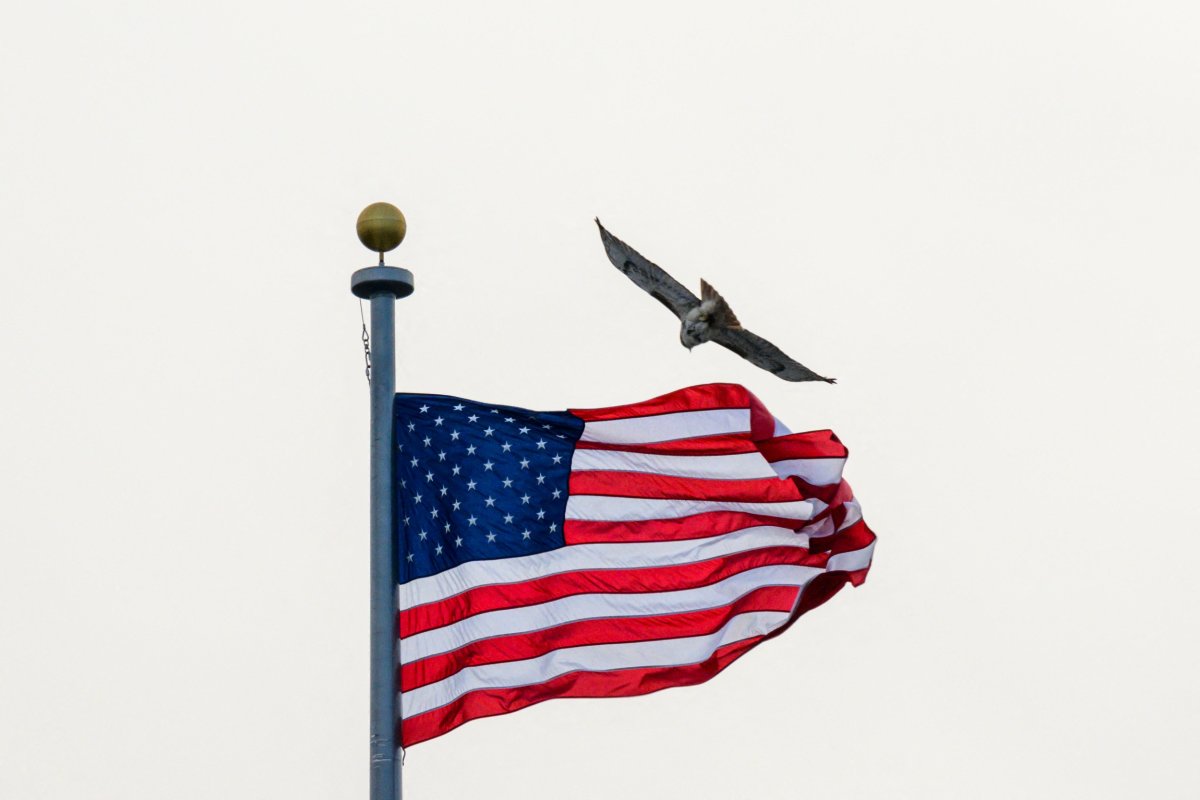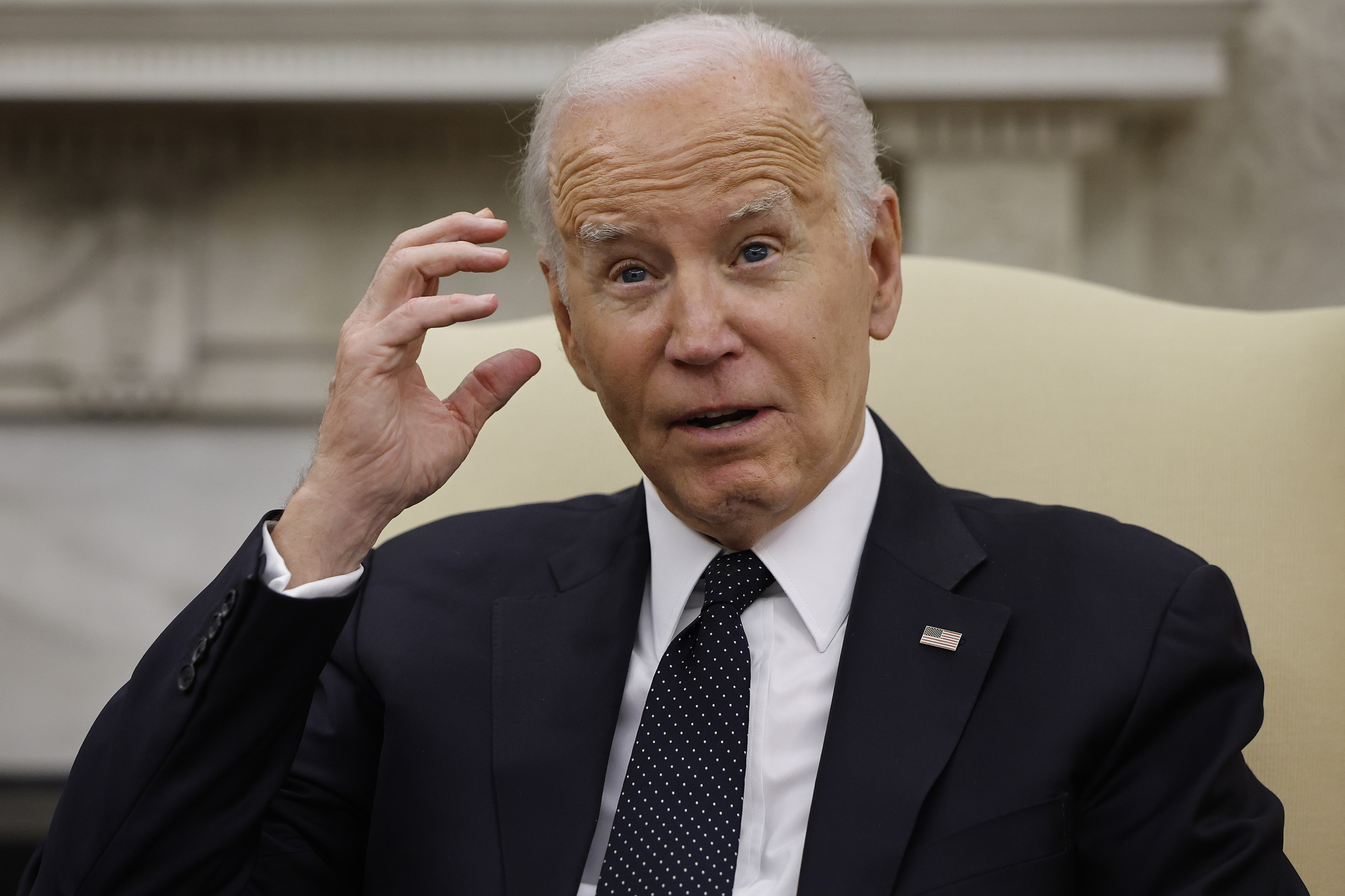Political polarization has become a fixture of American society. While stoking outrage and division may benefit certain media outlets and political agendas, it obstructs our ability to thrive as individuals and come together as a nation to make progress on the big challenges of our time.
When Americans are asked to use one word to describe politics in the U.S. these days, the most common response is "divisive." Healthy political debate is important. It fosters a marketplace of ideas, which is needed for personal, cultural, and economic growth.
But, in a society that is extremely politically polarized, the marketplace of ideas stops properly functioning. People privilege tribal loyalty over open-minded discussion, toleration, and compromise. Such polarization undermines social trust, and social trust supports democratic stability, entrepreneurship, and economic growth. Polarization may also be a contributing factor of America's growing mental health problem, which carries significant societal costs, including reduced work productivity and economic growth.
The good news is that most Americans are tired of being so polarized and believe that conflicts between Republicans and Democrats get too much attention. This suggests that, even though negative headlines drive online news consumption, Americans long for opportunities to feel more unified as a country.

To cultivate national unity in these polarized times, we need to encourage Americans to think more deeply about their fellow citizens, appreciating the psychological characteristics we have in common. The need for meaning in life is the right place to start because it is a basic human motivation that transcends politics, religion, and every other group identity.
Like other organisms, humans strive for survival. However, we are unique in that we also seek significance. We don't just want to live; we want our lives to matter. This quest for meaning energizes many of our social, spiritual, creative, and professional endeavors.
Americans on opposing sides of politics are in strong agreement when it comes to what makes their lives matter. Republicans and Democrats similarly reported that family is the most important source of meaning in life. This common ground won't directly resolve major policy disputes, but recognizing our shared existential humanity can lower the temperature in ideological debates, making it easier to find solutions through cooperation and compromise. People will be more willing to negotiate and creatively work through major disagreements if they appreciate that political beliefs and party affiliations aren't what truly matters most to their fellow Americans.
Americans can also find common ground in our outlook toward the future. We have a reputation for being a hopeful country and this reputation is largely warranted. A recent report from our team at the Archbridge Institute's Human Flourishing Lab found that 82 percent of Americans are hopeful for their own future, 85 percent are hopeful for the future of their families, and 74 percent are hopeful for the future of their local communities. Critically, these numbers are nearly identical for both conservatives and liberals.
Hope drops significantly and at nearly identical rates among both conservatives and liberals when it comes to attitudes about the future of the United States. However, a majority (57 percent of individuals in each group) are still hopeful for the future of the nation.
This decline in hope at the national level, irrespective of political ideology, may be driven by partisan media and discourse that encourages Americans to believe that the other side is destroying our nation. Encouraging Americans to focus on commonalities across political divides could inspire individuals with differing political positions to extend the hope they have in their own futures to the future of the nation. This matters because hope is more than a positive feeling. It fosters attitudes and behaviors that advance individual and societal flourishing. Research confirmed that hopeful people are more self-confident, goal-driven, creative, resilient, and inspired to actively participate in their communities.
It is helpful that Americans with different politics are united on what gives their lives meaning and in their hopeful mindset. But to truly connect Americans to a shared national identity requires a shared vision for our country.
Fortunately, we have one: the American Dream. Despite worries about the nation' future, most Americans on both sides of politics still believe in the American Dream. The Archbridge Institute's annual American Dream Snapshot survey found that 83 percent of conservatives and 76 percent of liberals reported that they have achieved, or are on their way to achieving the American Dream. Importantly, conservatives and liberals conceptualize the American Dream very similarly. Both groups view the freedom to live how one wants and having a good family life as the two most essential features of achieving the American Dream.
Americans have strong disagreements on a wide range of issues, but we are (still) united by a shared psychological bedrock. Across the political spectrum, there is a prevailing spirit of hope and a belief in the American Dream, which is rooted in freedom and the family bonds that make life meaningful for Republicans and Democrats alike.
Clay Routledge is vice president of research and director of the Human Flourishing Lab at the Archbridge Institute.
Gonzalo Schwarz serves as president and CEO of the Archbridge Institute.
The views expressed in this article are the writers' own.
Uncommon Knowledge
Newsweek is committed to challenging conventional wisdom and finding connections in the search for common ground.
Newsweek is committed to challenging conventional wisdom and finding connections in the search for common ground.
About the writer
To read how Newsweek uses AI as a newsroom tool, Click here.






